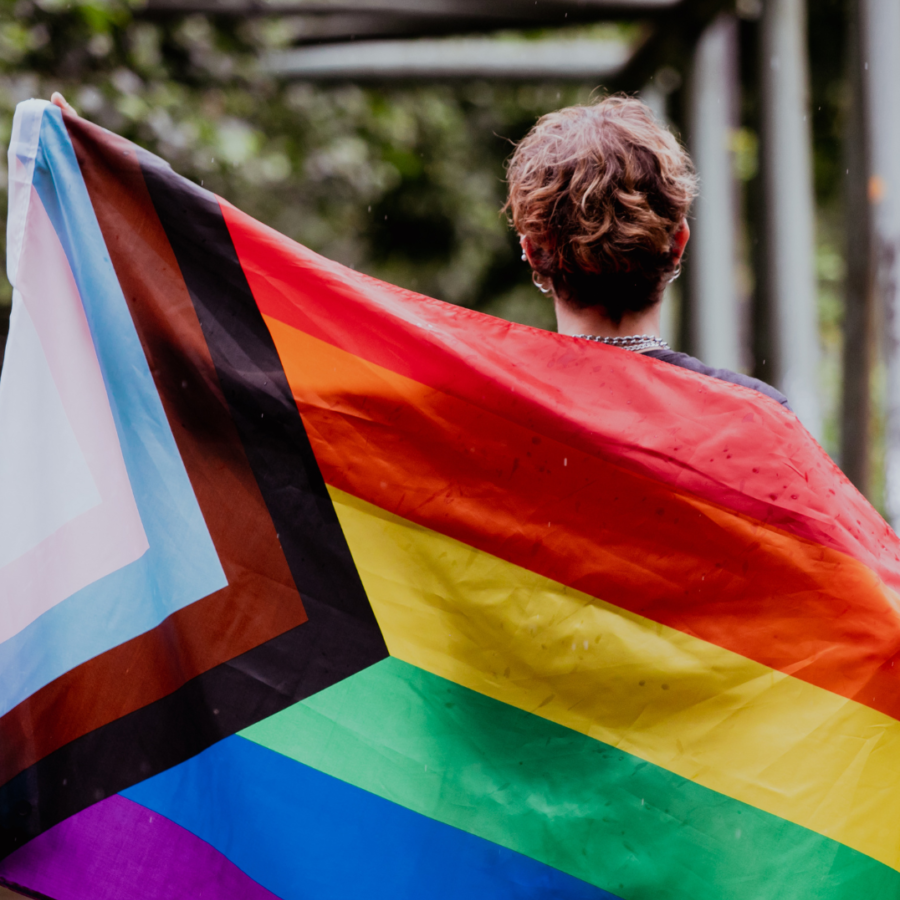
Trans Equality
Trans people deserve to live free from discrimination, prejudice and inequality. Yet in the UK, their rights and protections remain under threat. From slow legal reforms to rising hate crimes, the trans community continues to face hostility. Stonewall believes that trans rights are human rights, and that fighting for trans equality is not optional, it’s vital.
The landscape for trans people
Since 2015, Stonewall has proudly stood alongside trans communities, advocating for inclusive policies.
While trans people, like other minority groups, only represent a small proportion of the UK population, their rights are no less important. Although the data is contested, the Office for National Statistics stated in the last census: “A total of 262,000 people (0.5%) indicated that their gender identity was different from their sex registered at birth.”
There are many different routes and expressions of trans identity. Some trans people choose to go down the medical and legal route and some do not; reasons for this vary. In the UK, since the 2004 Gender Recognition Act was passed, the Ministry of Justice has issued over 9,000 full Gender Recognition Certificates (as of March 2025), which is when trans people change their gender legally to match their acquired gender.
While the numbers of the trans community seem relatively small, the LGBTQ+ population is growing. The Office for National Statistics suggests 1 in 10 Generation Z people identify as LGBTQ+, indicating that protections and inclusion will become increasingly important for organisations, politicians and policymakers.
The UK’s fall in global LGBTQ+ rankings has been in part due to stalled progress on trans rights.
Gender Recognition Reform (Self-ID)
From 2015 onwards, Stonewall became trans inclusive, actively campaigning for trans rights. During this period, calls to reform the 2004 Gender Recognition Act – or Self-ID as it became commonly described-were gaining increasing attention.
In 2017, Prime Minister, Theresa May, announced plans to reform the Gender Recognition Act, aiming to make the process of legally changing gender simpler and less medicalised. Ireland had already implemented a self-declaration system for gender recognition in 2015, allowing trans people to legally change their gender without medical requirements. They had done so without any major challenges. Stonewall welcomed the government's move and supported the decision to launch a public consultation. However, after three long years of engagement and thousands of responses, the government introduced only minor administrative changes, such as reducing the application fee and digitising the process, without addressing what many felt were the core issues. Stonewall expressed deep disappointment, calling it a missed opportunity to support trans communities meaningfully.
In 2023, the Gender Recognition Reform (Scotland) Bill was passed by the Scottish Parliament, reforming the process to obtain a gender recognition certificate. However, the UK government used Section 35 of the Scotland Act 1998 to block the bill from receiving royal assent, the first time this power had ever been exercised.
Stonewall has urged the government and policymakers to adopt international best practices and consult trans communities directly on reform.
The background to the “No Debate” slogan
Since the early 2000s, many in the trans community have taken the position that they will not discuss the validity or existence of trans identities; ‘no debate’ became the shorthand slogan for this position.
Over the years, the meaning of that slogan has been intentionally misappropriated to suggest that trans people and their allies were refusing to collaborate, compromise or discuss policy affecting trans people.
Many public forums that aired discussions on trans issues or topics chose not to focus on policy questions, but instead often focused on whether being trans was a valid identity and whether trans people existed. In response to this, many trans people were left feeling vulnerable and unsafe, and refused to engage in public conversations on these terms.
In 2017, Stonewall highlighted how some were using proposed reforms of the Gender Recognition Act to again question the very right of trans people to exist. As Stonewall highlighted at the time, “This cannot be up for debate.”
Stonewall’s position has always been clear: trans people’s existence is not up for debate. Just as debates over the existence of gay people or people of faith wouldn’t be tolerated, the same applies to trans communities. This is separate from discussions about policy affecting trans people, which Stonewall has consistently and openly engaged with. As Simon Blake, Stonewall’s CEO, reiterated in a wide-ranging 2024 Guardian Interview, drawing on the 2017 ‘Vision for Change’ report, open conversation is always welcomed and encouraged, but not at the expense of legitimising hate or discrimination.
The rise in trans hate crime
Over the years, Stonewall has worked to create a more inclusive society, fighting for equal marriage, inclusive education and anti-discrimination laws. Yet despite this progress, anti-trans hate crime has risen from 2,799 instances recorded by police in 2020/21 to 4,780 instances in 2023/24. Abuse takes place online, on our streets, and in public spaces, leaving many LGBTQ+ people feeling unsafe in their daily lives.
Latest research shows that fewer than half (44%) of LGBTQ+ people feel safe holding their partner’s hand in public. The true scale of the problem is almost certainly higher, since fewer than 1 in 10 LGBTQ+ people report hate crimes or incidents, according to the Government's National LGBT Survey.
This trend is not isolated to the UK. ILGA-Europe’s 2025 Rainbow Map paints a stark picture of regression across some countries in Europe, and a corresponding increase in hate crime.
Why Stonewall fights for trans equality
Since 2015, Stonewall’s work has grown to include trans specific campaigns, resources and training. From lobbying for reform of the Gender Recognition Act to amplifying trans voices in schools, workplaces and public life, Stonewall has worked alongside trans communities to push for systemic change.
In recent years, there's been a rise in transphobia. This climate of hostility has made Stonewall’s work more urgent than ever, and confirms why trans inclusion remains so vital. Advocating for trans people is essential for achieving true equality for all LGBTQ+ people. Stonewall believes that LGBTQ+ equality is incomplete without trans equality, and that’s why we fight every day to make it a reality.




